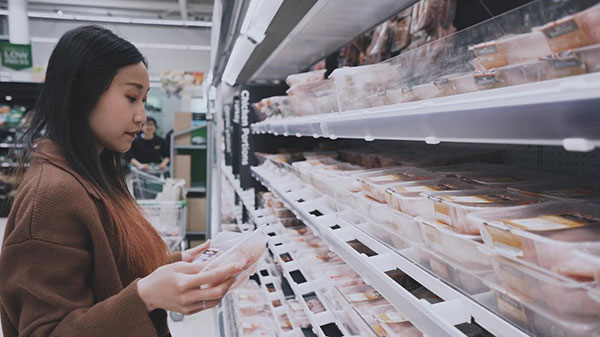Via Wicked Leeks:
By Nina Pullman
Feeding animals with UK-grown protein crops could help replace imported soya that is grown using toxic pesticides harming both humans and wildlife, a new campaign has said.
The Soil Association wants supermarkets to help farmers to start reducing soya, which is a nutritious and cheap element of animal feed grown primarily in Brazil, and encourage more use of UK-grown protein crops like beans, vetch and sprouting wheat.
Soya is known to be linked to deforestation as fragile forest ecosystems in the Amazon and Cerrado regions are cleared to grow the crop, but it is also a major user of pesticides in these areas.
Soya accounts for 60 per cent of Brazil’s pesticide use, with 150 products approved for use including chlorpyrifos and imidacloprid (known to be ‘highly toxic to bees’), and paraquat, a herbicide that is ‘fatal if inhaled’, according to a report called Stop Poison Poultry released alongside the campaign.
Pesticides are responsible for 70,000 poisonings annually in Brazil, according to data prepared by the Brazilian Association of Public Health and published in the report, with children among the most severely affected.
In the UK, at least three quarters of soya consumption is within animal feed, mostly fed to chickens and pigs, and more than one million tonnes of soya is imported into the UK each year to feed British meat chickens.

“Chickens are the primary British consumer of Brazilian soya,” said Soil Association campaigns advisor Cathy Cliff. “While soya has been a sensible choice from a nutritional perspective, providing the right balance of amino acids for poultry, the ecological costs have become intolerable. Vulnerable animals and communities are paying that price with their health.
“We need to be thinking about the resilience of UK production, as well as our environmental footprint overseas. Our farmers should be able to purchase feeds that don’t harm biodiversity and communities.
“Now is the time to invest in UK protein crops and ease our reliance on imported soya – British businesses can lead the way in addressing this environmental challenge.”
The Soil Association wants more farmer-led research into UK-grown animal feed after a recent trial found some good alternatives. The group also wants supermarkets to encourage and facilitate the take up of these alternative proteins.
Innovative Farmers field lab coordinator Jerry Alford said: “Soya is hard to beat nutritionally, and although it can be grown in the UK in certain areas, it’s unlikely to be possible to grow it in the volumes needed.
“We need to look at what resources we have available, what we can grow, and how we can adapt these to produce our own alternative feeds, rather than importing them.
“But farmers need to have confidence that alternatives will work in UK soils and that they are doing right by their animals, so we quickly need to see more research and commitments from retailers and processors to build the market for these products.”
Cliff added: “The poisonings associated with poultry farming are not the fault of British farmers or retailers, but the evidence is deeply concerning, and everyone involved has a part to play. That’s why we’re campaigning to ‘Stop Poison Poultry’ and asking retailers and supply chains to invest in UK protein crops in place of soya.”
It comes as farmers told Wicked Leeks last year that what they grow is largely influenced by what agribusinesses want to sell and make available, and as protein crops like peas and beans don’t require many additional inputs, research and investment has been limited.
While protein crops are primarily used in animal feed, there is also a parallel movement to invest more in British-grown pulses and legumes for human consumption as a sustainable animal protein alternative.




I understand that Red-Green Labour can publish informative articles that it does not necessarily agree with and it is useful to see what the Soil Association is up to. This article seems to be advocating a position of devoting even more land in the UK to agriculture in order to sustain the unsustainable – namely the livestock industry. Yes, not using soya in the UK for animal feed might impact the industry in Latin America and result in slightly less deforestation, but this is not an issue that can be dealt with by just altering the terms in which that market operates. Several things are needed instead:
– End of the livestock industry and market-based meat consumption – except where it serves the needs of indigenous cultures.
– A positive campaign for replacement of livestock agriculture and growing animal feed with with new land tenure models, ensuring high quality foods for humans and extensive re-wilding, both in the imperialist countries and the Global South.